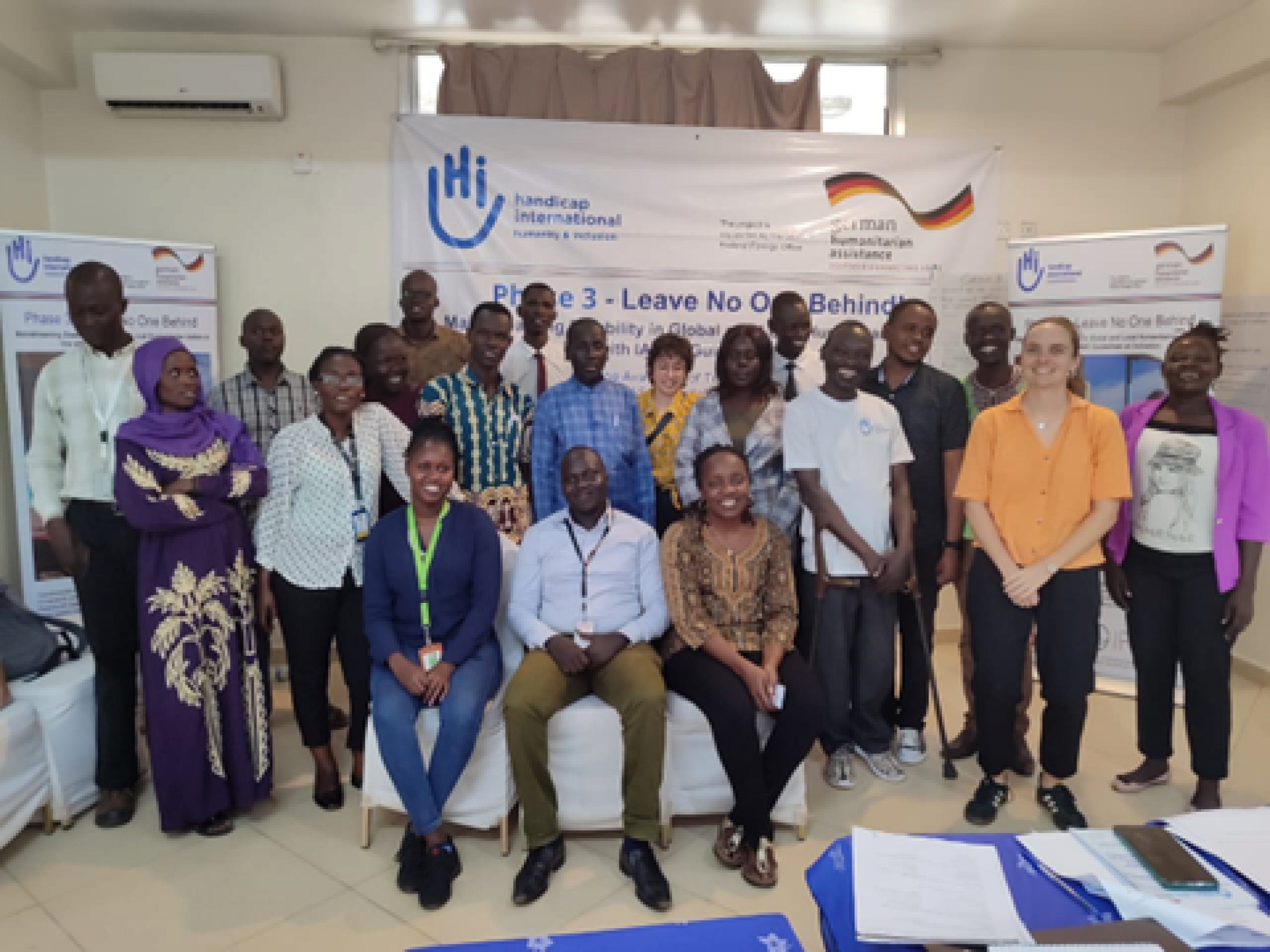2nd Review, Adapt and Action Learning laboratory held in South Sudan
Category
Capacity Building Pilot Countries
© HI/Obale Musa
HI’s South Sudan project team conducted its second Review, Adapt and Action Learning laboratory (RAAL-Lab) workshop to Protection cluster members in Landmark hotel, Juba, South Sudan from 22nd to 24th November 2023. The three–day training drew 19 participants from six National and seven International Non-Governmental Organizations.
The training was tailored based on the Disability Reference Group (DRG) training modules on Introduction to Disability-Inclusive Humanitarian Action, giving insight to concept of disability, IASC – Guidelines on inclusion of Persons with Disabilities, universal design, accessibility and reasonable accommodation, Must Do Actions, inclusive project cycle management, and used the Review, Adapt and Action Learning laboratory (RAAL-Lab) method developed by our project.
The RAAL Lab methodology is a process that gives opportunity to participants to review, develop, learn jointly, and adapt the existing assessment tools to align them with the recommendations of the IASC Guidelines. During the workshop participants had the chance to review three assessment tools harvested from the participant organisations and to analyse the existing gaps on them.
Beside this, the participants acquired knowledge on disability-inclusive humanitarian action through Must Do Actions, twin-track approach, and use of the IASC Guidelines, which they applied during the practical review of the assessment tools.
Two members of Organization of Persons with Disabilities (OPDs) were engaged as co-facilitators and shared a lot of real-life experiences and examples, which not only enhanced participants’ understanding but also gave them the confidence to start engaging persons with disabilities in their programming. As one of the participants concluded:
This training in a revelation, because we have never engaged Persons with Disabilities in our programing and never consulted the existing Organization of Persons with Disabilities before, from now onward at least we have understood the concept and would be able to apply what we have learnt.
Text & Photos by Obale Musa, HI South Sudan